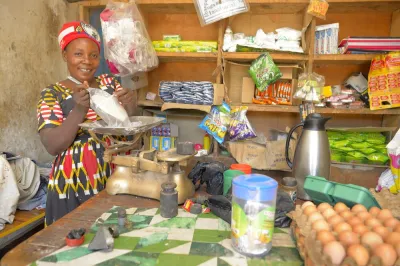Provision of Professional Consultancy Services for Financial Inclusion Demand Side Survey Analysis for the Reserve Bank of Vanuatu
The Reserve Bank of Vanuatu (RBV), institution affiliated with AFI and leading the formulation of the NFIS in the country is currently conducting the Financial Service Demand Side Survey (DSS), which will contribute to the formulation of the National Financial Inclusion Phase 2. The RBV has partnered with the Vanuatu Bureau of Statistics Office (VBoS) to undertake this survey, recruited enumerators, and started data Collection in March 2024. Furthermore, the RBV has requested the assistance of the Alliance for Financial Inclusion (AFI) in recruiting a qualified consultant to review the Demand Side Survey Data, conduct analytics, and develop the Financial Service Demand Side Survey 2024 Report. The consulting firm is also expected to support with the planning and implementation of a dissemination workshop to RBV and other identified stakeholders in Vanuatu on the findings and key insights from the Financial Services Demand Side Survey 2024.
Scope of Work
A combination of remote work including desk research and on-site work (at least 3 to 5 working days) in Vanuatu conducting a multi-stakeholder validation workshops sharing the overall results of the DSS with the lead technical team and with relevant stakeholders, stakeholder workshops to consult and validate findings and proposals are expected to ensure an optimal engagement with the local stakeholders and adequate context setting, as well as an internal capacity building to RVB staff on the database management is expected from the project. The main outputs include the following:
- An analytical dataset anonymized and built on different formats (SPSS, STATA, Excel) as directed by the RBV and the Bureau of Statistics Office (VBoS) considering the probability weighted results for future consultations, and following the main framework and objectives of the survey.
- A descriptive analysis report with the main probabilistic weighted results of the survey following the main sampling objectives of the Survey including national, urban/rural, and gender dichotomies including the main financial inclusion metrics to be used as a baseline for the formulation of the National Financial Inclusion Strategy. Some considerations to note:
- Ensure the dataset includes gender-disaggregated data in each of the formats (SPSS, STATA, Excel), allowing for clear identification of gender disparities across financial inclusion metrics.
- Use probability-weighted results to analyze gender-specific trends in financial access and usage, financial literacy, and barriers to entry, considering both national and urban/rural breakdowns.
- Develop gender-based cross-tabulations and visual representations of key metrics, highlighting financial inclusion gaps between men and women.
- Provide analysis on urban/rural dichotomies to understand the demand-side approach to Inclusive Green Finance data collection, including datasets on inclusive green finance services such as insurance, green credits, access sustainable energy etc., are accessed differently across regions and groups, particularly highlighting vulnerable populations.
- Organize under the support of the RBV and the VBoS a multi-stakeholder workshop in Port Vila, Vanuatu to validate the main results and hypothesis from the analytical outputs of the survey to enable the drafting of a policy-oriented report built upon the main results of the demand-side survey results.
- An on-site one-to-two-day training to RBV’s research team on the use of the DSS database.
- A policy-oriented report draft on the demand-side survey results including but not limited to a national, urban/rural, gender, and resilience/sustainable finance aspects following the original objectives/instrument of the survey. Some considerations to note:
- Include a dedicated section on gender-specific findings, highlighting key trends, challenges, and opportunities for increasing women's financial inclusion.
- Incorporate gender-based recommendations that align with the findings of the survey to inform the development of the National Financial Inclusion Strategy, focusing on improving access, usage, and the quality of financial services for women, particularly in rural areas.
- Ensure the gender component is integrated into the baseline data for future monitoring of gender equality in financial inclusion initiatives.
- Ensure the policy-oriented report includes a section on the role of financial inclusion in promoting resilience and green finance. This could highlight how financial services aligned to the 4-P framework can be leveraged to support climate adaptation and sustainability.
- Address gaps and opportunities in inclusive green finance, identifying areas where financial products and services could support environmental sustainability, especially for women and rural communities.
- Provide recommendations on integrating green finance into the National Financial Inclusion Strategy, promoting policies that encourage financial services to contribute to environmental sustainability while addressing gender and urban/rural disparities.


